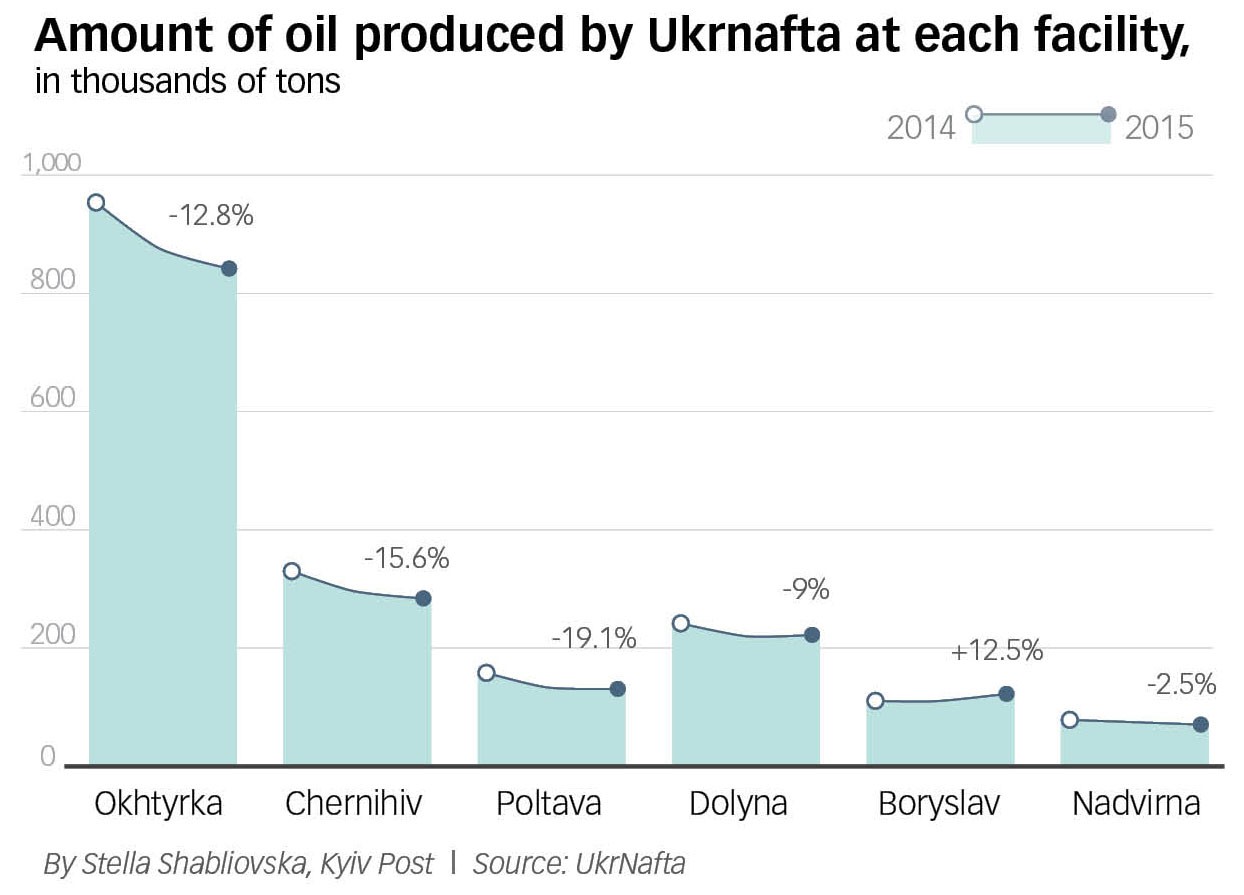Ukraine’s state-owned oil producer Ukrnafta owes Hr 12 billion ($445 million) in taxes. It has undergone years of production drops, while the company’s board of directors appears to remain beholden to billionaire Ihor Kolomoisky, one of the country’s most notorious oligarchs.
But Ukrnafta’s management hasambitious plans to turn the company around, with a view towards doubling production within 10 years.
With a deadlocked board, big changes are difficult. But the company can still attempt end runs around the problem by becoming more efficient as part of a broader effort to purge itself of Soviet-era bureaucracy.
So Ukrnafta hired British development firm Crown Agents last year to analyze its procurement systems.
Ukrnafta Executive Vice President for Technology and Services Robert Whalley told the Kyiv Post that the company has already saved up to 10 percent on procurement from starting to implement the plan’s recommendations, but could reach even 30 percent.
“This is a really ambitious plan and it was an area of supply chain where you can take specific expertise and apply it to Ukrnafta,” said Tetiana Korotchenko of Crown Agents.
Ukrnafta did not fund the study. A British government development fund, administered by auditor PwC, which also audited PrivatBank, previously owned by Kolomoisky, provided money for the project.
Stagnation
Ukrnafta has spent most of the past 15 months floundering. A new management team, led by British citizen Mark Rollins, entered in October 2015 amid lingering questions over whether the state has wrested control from Kolomoisky.
Rollins, promising to double the company’s production within 10 years, supports a debt restructuring plan that would see the company repay back taxes over the next few years so the company can company to focus on extracting and selling more oil.
The board’s refusal to pass the restructuring, however, stifled progress.
Soviet ways linger. Crown Agents found that some purchases required more than 70 signatures before approval.
“It’s an ongoing process to simplify and to clarify,” Whalley said. “That’s also part of this issue of accountability – when 70 people decide, that means no one is responsible.”
Whalley declined to say if streamlining the company’s “incredibly bureaucratic” system would mean laying off members of Ukrnafta’s workforce.
The Ukrnafta executive added that almost all of Ukrnafta’s processes had been done on paper, and not electronically. Ukrnafta has, however, begun to conduct purchases through the Prozorro electronic platform. Although not all of the company’s procurement will be on the transparency platform, Whalley said he hoped to move a significant portion onto it.

Decentralization
The company, on Crown Agents’s recommendation, has also launched a pilot program in Poltava, a city of 290,000 residents located 340 kilometers east of Kyiv, to decentralize operations
Ukrnafta’s Poltava oil terminal now has a supply chain center that allows wells and other units in the region to get resupplied locally, as opposed to having to reach back to Kyiv.
“It removes a level of bureaucracy,” Whalley said, adding that it also cuts time on fulfilling equipment orders.
Crown Agents performed its analysis of Ukrnafta’s supply chain in October. The company has around four years to implement all of the recommendations.
Whalley said that Ukrnafta may hire Crown Agents to perform additional analyses on how it stocks inventory. On whether it would also commission an analysis on Ukrnafta’s oil sales, he demurred.
